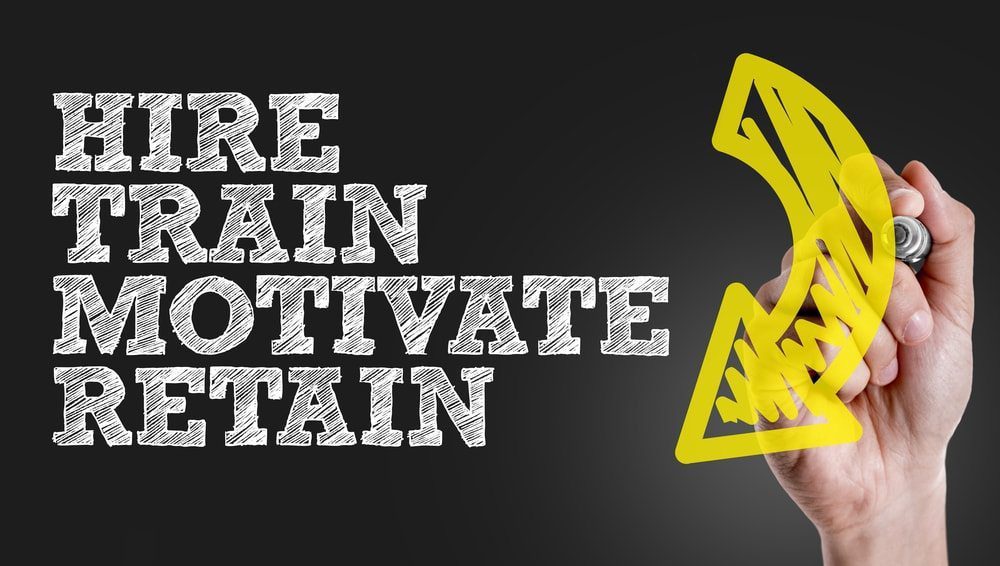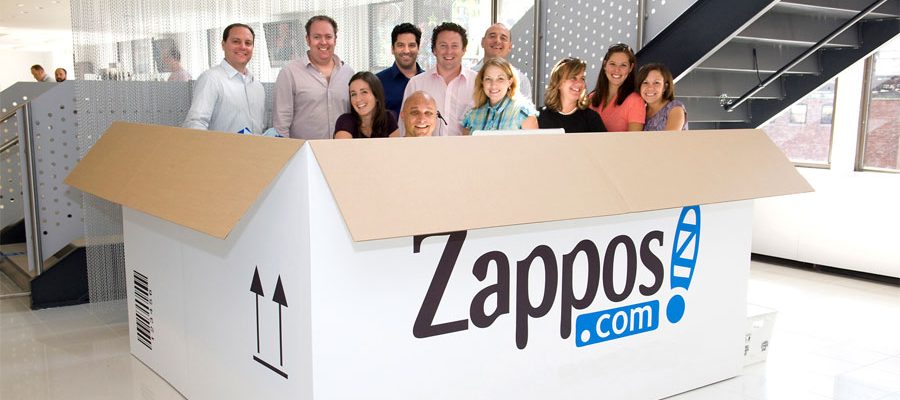0
You have 0 items in your cart

IMPROVE THE CULTURE, NOT THE PERKS
Culture can be defined as an evolving set of values, beliefs, and attitudes. The culture of a business affects every single aspect of how it operates. It is basically ”the way we do things around here” and how decisions are made. A business culture is at the heart of whether a company is innovative or development-focused, value-driven or indistinct, risk-averse or risk-takers – the list is endless. It’s the values that an organization lives by and is ultimately one of the things that can make or break a business.
 On the other hand, a perk typically consists of something that can boost employee morale and help them perform their duties more effectively. Employee perks are the extras offered in addition to standard benefits. Traditional perks may include a company car, travel fares, and special access to premium hotel suites while the latest package of perks could include gym memberships, summer holidays, and offsite team building activities.
On the other hand, a perk typically consists of something that can boost employee morale and help them perform their duties more effectively. Employee perks are the extras offered in addition to standard benefits. Traditional perks may include a company car, travel fares, and special access to premium hotel suites while the latest package of perks could include gym memberships, summer holidays, and offsite team building activities.
Why Perks Aren’t Company Culture
People often mistake perks for culture. Many are lured to join a company with gourmet catering and unlimited vacation, only to find that most employees in the enterprise are either frustrated or detached?
 Let’s ruminate on perks for a moment. Sure, a fully stocked refrigerator or regular meal outings is a whole lot of fun, but how is it supporting your culture? Is it encouraging teamwork or generating circles? In the same way, it is a worthy gesture to offer free dinner if employees are working late, but is this really a perk or an incentive to make people work beyond their regular hours?
Let’s ruminate on perks for a moment. Sure, a fully stocked refrigerator or regular meal outings is a whole lot of fun, but how is it supporting your culture? Is it encouraging teamwork or generating circles? In the same way, it is a worthy gesture to offer free dinner if employees are working late, but is this really a perk or an incentive to make people work beyond their regular hours?
With that being said, it is imperative to understand a good culture is created because employees like being in the workplace and derive pleasure doing their jobs.
Perks Can Be Part of Culture but Shouldn’t Be Used As Substitute
Perks cannot be used as a substitute for organizational culture. This simply means you cannot sit back and let gym stipends or onsite massages be a gateway to all organizational problems. Even though perks make the workplace a lot more fun, studies have shown that employees are really looking for recognition, and the ability to add value to an organization.
 Do not be mistaken; perks are not bad. In fact, they enhance the culture. The major problem with them is that they are often presented as a recruitment technique rather than as an improvement of culture. What do free lunches or complimentary laundry services mean if there is low turnover or employee unhappiness? Instead of concentrating on the latest perks, leaders and managers need to prioritize cultural elements to create a framework for employee engagement and satisfaction.
Do not be mistaken; perks are not bad. In fact, they enhance the culture. The major problem with them is that they are often presented as a recruitment technique rather than as an improvement of culture. What do free lunches or complimentary laundry services mean if there is low turnover or employee unhappiness? Instead of concentrating on the latest perks, leaders and managers need to prioritize cultural elements to create a framework for employee engagement and satisfaction.
What Are Employees Really Looking For?
Twenty years ago, employees associated job satisfaction with vacation time, retirement plans, good salaries, and medical benefits. All these factors still matter today, but workplace perks have assumed a whole new meaning. Modern employees are looking for an environment that will enhance their work experience and make their job more enjoyable.
Employees want to work in an organization with a strong sense of purpose, and commitment to values. Environments with communal trust and a shared vision give them room to speak up so that bad practices can be stamped out and good ideas cultivated. But, are some companies confusing a purposeful culture with enticing perks? Is free pizza really enough to attract and retain top talent or does it need to be reinforced with more meaningful offerings? Here are some of the things employees are really looking for:
 More than just rewards
More than just rewards Respect
Respect Recognition
Recognition Ability to add value
Ability to add valueIN SHORT: CULTURE IS WHAT RETAINS EMPLOYEES
Culture plays an important role in the kind of workforce you attract and retain. Perks will not make up for a bad culture. If your culture is bad, you will still have problems attracting and retaining the right talent. The people that will thrive in your culture are those whose values resonate with those of the company. Rather than spending money on offering the latest perks, use it instead to ensure you have a company culture where the workforce actually wants to come to work because the company’s culture aligns with their expectations.
Having Perks As the Basis of a Culture Doesn’t Work
When you put them under the radar, perks mean very little when compared with culture and instead are often used to plaster significant persistent problems. Of course, unlimited holidays and fun stuff are going to have an important place in the work environment, but the regular free lunch outing in isolation isn’t going to cut it. Leaders need to consider the broader reward package, how it signals what is important to the business and how it boosts an organization’s culture. It is, therefore, imperative to reward people based not only on the metrics of performance but also on feats and alignment to values. This is the most important way of reinforcing cultural norms.
 The standard rewards don’t offer any interpersonal motivation or challenge, don’t have a direct impact on the material success of a business and are often short-term. The longer you try to espouse a culture with perks alone, the more you harm the company. You will have high turnover in the workplace, but you will be recompensing rewards that do not fix the real problem. A disengaged workforce will cost the company in errors — according to Harvard Business Review, a healthy culture saves a company up to $300 million when compared to another company of similar size but with poor culture.
The standard rewards don’t offer any interpersonal motivation or challenge, don’t have a direct impact on the material success of a business and are often short-term. The longer you try to espouse a culture with perks alone, the more you harm the company. You will have high turnover in the workplace, but you will be recompensing rewards that do not fix the real problem. A disengaged workforce will cost the company in errors — according to Harvard Business Review, a healthy culture saves a company up to $300 million when compared to another company of similar size but with poor culture.
Ultimately, it is imperative to understand that perks do not go hand in hand with culture. A good culture is created when employees love being in the workplace and working together with other people. When culture is the central point of your reward system, then building a culture becomes a higher priority than the perk. Find out what motivates your employees and work towards building a culture that satisfies their needs. Employees enjoy working at the company because of the enjoyment in and of itself.
Instead, Use Perks As an Enhancement of Culture
Use them in a way so they help build
In addition to improving loyalty among employees, perks can be a great tool to promote your company’s values and mission. If your firm has invention as a value, you can consider offering an entrepreneurial speech sequence. By so doing, you demonstrate the commitment of the company to its values and encourage employees to be aligned with these values in their lives. Correspondingly, it is important to note that perks cost money so they should always be offered in a way that is sure to add value and meaning to them.
Do not consider perks as the backbone of a culture
When you think of companies with great organizational culture, it is easy to focus on perks. The silver lining here is that perks do not define a good culture. It is not about setting up a ping-pong table or offering free vacations. A few choice components cannot piece together a distinctive culture. Culture is something that is built on mission and vision, and everything else including perks sprout organically from its foundation. To put it in simple terms, perks have their place, but nurturing a great company culture is definitely more important.
 Find out what really motivates employees and find a perk that goes hand in hand with it
Find out what really motivates employees and find a perk that goes hand in hand with it
The best perks are those that reverberate with both individual and collective performance. At the time of sourcing for perks, you need to understand how they fit with your cultural foundations. The simple act of offering people free things doesn’t necessarily make them more involved or inspired. A sense of pride, recognition, and alignment to values is always far more important, especially if cooperation is the fundamental element. For instance, if you want to enhance teamwork, organize team events rather than rewarding high performing individuals. If you want to improve personal flexibility, introduce gym memberships or health conscious foods.
Do not use perks as a recruitment technique
When making hiring decisions, it is important to not only look at the technical skill and ability to learn but also the candidate’s cultural fit and long-term talent requirements. This doesn’t necessarily translate to hiring robots — it is about identifying the right people who share the vision of the organization. However, attractive perks can stand in the way of the recruitment process. You may end up bringing people that can do serious damage to your company brand and customer experience. Ultimately they will leave, as they won’t feel engaged: yet all these could have been curbed in the recruitment process. If employees don’t fit your culture, they don’t belong to your company.
How Zappos Use Perks To Enhance Culture
 Perks are an integral part of Zappos’ everyday culture. These include access to free lunches, vending machines, game rooms, nap rooms, reduced prices on coffee as well as reimbursements for endurance events and membership to weight programs. Zappos has increasingly gained popularity due to its great culture. Employees live and breathe by a workplace culture, which is built upon a strong set of company values.
Perks are an integral part of Zappos’ everyday culture. These include access to free lunches, vending machines, game rooms, nap rooms, reduced prices on coffee as well as reimbursements for endurance events and membership to weight programs. Zappos has increasingly gained popularity due to its great culture. Employees live and breathe by a workplace culture, which is built upon a strong set of company values.
It all starts with a cultural fit interview process, which carries a significant percentage of the weight of whether a candidate is hired. A qualified candidate goes through a three-stage process after applying for a job- a recruiting phone screen phase, a technical phone screen phase, and a two-time on-site interview. The thorough recruitment process ensures that the candidate who has the right skills and is a culture fit for the company is hired.
A host of benefits and a workplace that is fun and dedicated to making customers happy all fit into Zappos culture. Employees at the company claim that serving customers comes naturally to them. This only goes to show how a great company culture cultivates excellent customer service and a great brand.
The new generation workforce attaches a lot of importance to aspects such as values, vision, and mission. Companies that fail to give priority to these trends risk being pushed out of the competition.
The next time you are tempted to buy a ping-pong table for your communal workplace, remember this: culture originates from values, not material objects. If the acquisition doesn’t build your company values, it is just not worth it.
This Privacy Policy describes how SmartMinds Enterprise OÜ (“SmartMinds”, “we”, “us” or “our”) handles information about yourself that you may provide us with through your use of the Site or Service (“Personal Information”) and should be read along with our Terms of Use posted here, and all other operating rules and additional terms and conditions published on our Site.
SmartMinds is committed to keeping your information secure and managing it in accordance with our legal responsibilities under privacy and data protection laws where we operate. SmartMinds uses your Personal Information only in accordance with this Privacy Policy and Applicable Law. SmartMinds does not sell your Personal Information to third parties. Any capitalized terms not defined in this Privacy Policy are defined in the Terms of Use.
We employ the use of cookies. By using SmartMinds‘s website you consent to the use of cookies in accordance with SmartMinds’s privacy policy.
Most of the modern day interactive web sites use cookies to enable us to retrieve user details for each visit. Cookies are used in some areas of our site to enable the functionality of this area and ease of use for those people visiting. Some of our affiliate / advertising partners may also use cookies.
Unless otherwise stated, SmartMinds and/or it’s licensors own the intellectual property rights for all material on SmartMinds All intellectual property rights are reserved. You may view and/or print pages from https://smartminds.one for your own personal use subject to restrictions set in these terms and conditions.
You must not:
We will approve link requests from these organisations if we determine that: (a) the link would not reflect unfavourably on us or our accredited businesses (for example, trade associations or other organisations representing inherently suspect types of business, such as work-at-home opportunities, shall not be allowed to link); (b)the organisation does not have an unsatisfactory record with us; (c) the benefit to us from the visibility associated with the hyperlink outweighs the absence of SmartMinds; and (d) where the link is in the context of general resource information or is otherwise consistent with editorial content in a newsletter or similar product furthering the mission of the organisation.
These organisations may link to our home page, to publications or to other Web site information so long as the link: (a) is not in any way misleading; (b) does not falsely imply sponsorship, endorsement or approval of the linking party and its products or services; and (c) fits within the context of the linking party’s site.
If you are among the organizations listed in paragraph 2 above and are interested in linking to our website, you must notify us by sending an e-mail to Please include your name, your organisation name, contact information (such as a phone number and/or e-mail address) as well as the URL of your site, a list of any URLs from which you intend to link to our Web site, and a list of the URL(s) on our site to which you would like to link. Allow 2-3 weeks for a response.
Approved organizations may hyperlink to our Web site as follows:
No use of (name)’s logo or other artwork will be allowed for linking absent a trademark license agreement.
Without prior approval and express written permission, you may not create frames around our Web pages or use other techniques that alter in any way the visual presentation or appearance of our Web site.
We shall have no responsibility or liability for any content appearing on your Web site. You agree to indemnify and defend us against all claims arising out of or based upon your Website. No link(s) may appear on any page on your Web site or within any context containing content or materials that may be interpreted as libelous, obscene or criminal, or which infringes, otherwise violates, or advocates the infringement or other violation of, any third party rights.
We reserve the right at any time and in its sole discretion to request that you remove all links or any particular link to our Web site. You agree to immediately remove all links to our Web site upon such request. We also reserve the right to amend these terms and conditions and its linking policy at any time. By continuing to link to our Web site, you agree to be bound to and abide by these linking terms and conditions.
If you find any link on our Web site or any linked web site objectionable for any reason, you may contact us about this. We will consider requests to remove links but will have no obligation to do so or to respond directly to you.
Whilst we endeavour to ensure that the information on this website is correct, we do not warrant its completeness or accuracy; nor do we commit to ensuring that the website remains available or that the material on the website is kept up to date.
We have a 30-day Money Back Guarantee when purchasing Realized Mind, all we ask if that within the 30 days to complete the learning experience and if you truly feel you did not receive any value from the experience we are happy to refund your payment and close your account.
To the maximum extent permitted by applicable law, we exclude all representations, warranties and conditions relating to our website and the use of this website (including, without limitation, any warranties implied by law in respect of satisfactory quality, fitness for purpose and/or the use of reasonable care and skill). Nothing in this disclaimer will:
The limitations and exclusions of liability set out in this Section and elsewhere in this disclaimer: (a) are subject to the preceding paragraph; and (b) govern all liabilities arising under the disclaimer or in relation to the subject matter of this disclaimer, including liabilities arising in contract, in tort (including negligence) and for breach of statutory duty.
To the extent that the website and the information and services on the website are provided free of charge, we will not be liable for any loss or damage of any nature.
